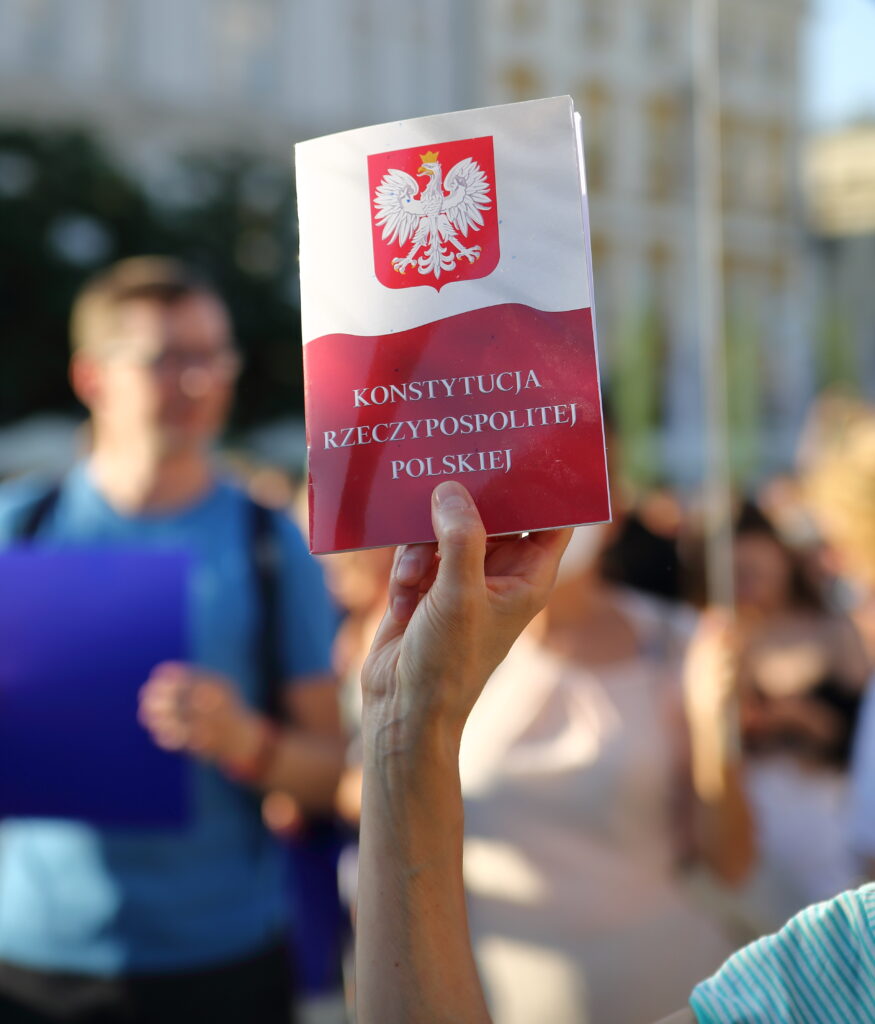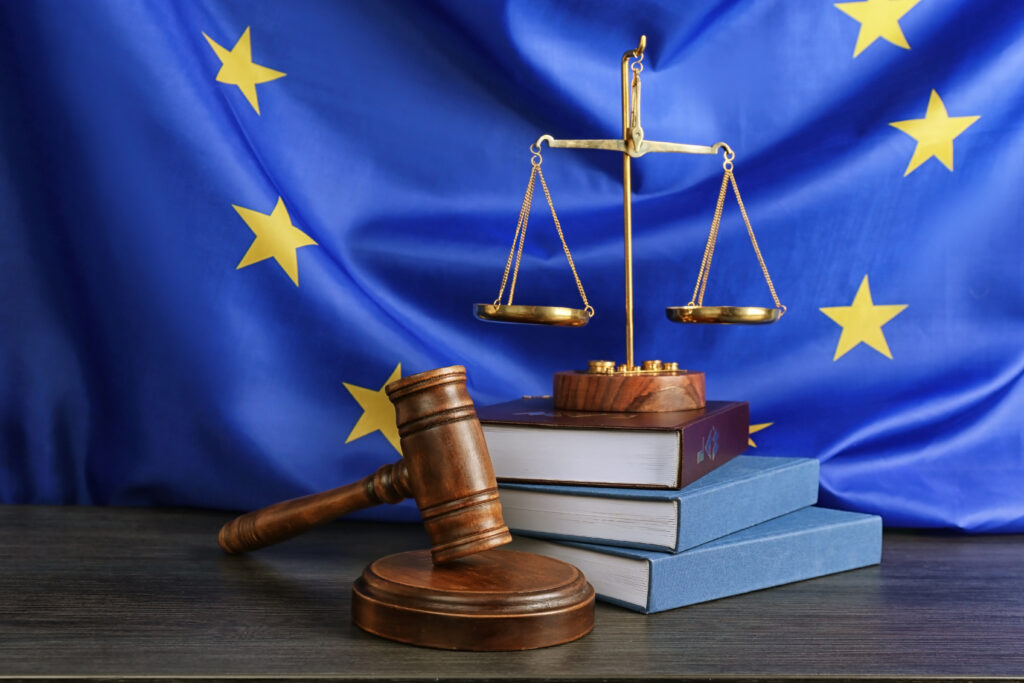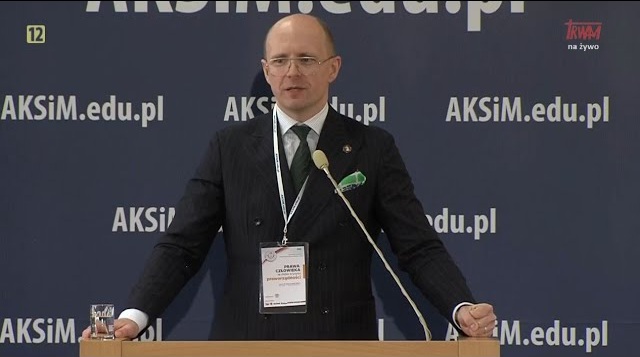The Constitution of the Republic of Poland establishes a system of values on which the Polish political system is based. This axiology is expressed in principles that are not directly codified in the Polish constitution. Therefore, the Constitution does not provide a catalogue of these principles. They are the product of constitutional law, which interprets them primarily from Chapter I of the Constitution entitled ‘The Republic’. On this basis, various catalogues containing from several to even a dozen or so principles are created. In addition to Chapter I, the principles are also interpreted from other parts of the Constitution, and thus it is necessary to mention, first and foremost, the principle of human dignity, which opens Chapter II devoted to the freedoms and rights of humans and citizens, or the principle of subsidiarity included in the Preamble. Chapter I regulates, among other things, the principle of the common good (Article 1), the principle of the unity of the Republic (Article 3), the independence and inviolability of the territory of the Republic (Article 5), as well as the well-known principle of a democratic state ruled by law, which implements the principles of social justice (Article 2). Several others could be mentioned, as the list is not exhaustive and constitutional law also attributes the status of principles to other provisions of the Constitution, such as freedom of association (Article 12).
Sovereignty as the basis for the functioning of the state
The content of the principles is determined on the basis of axiological sources existing outside the Constitution. The basic law therefore draws on a system of values external to the Constitution that shapes individual and social life in Poland. The principles are of great importance in the process of interpreting the Constitution and ultimately determine the political identity of the Republic of Poland, deciding on its distinctiveness. For this reason, we attach particular importance to certain principles, such as the principle of the supreme authority of the Nation, the representative form of government, the principle of the common good, the principle of the rule of law and the principle of a democratic state ruled by law. These principles play a special role in the political system. However, it seems that these principles could also be viewed from the perspective of their significance in the political situation in which Poland currently finds itself. This concerns both internal and international relations, and thus, above all, the threat of the imminent creation of a centralised European Union and the loss of independence and sovereignty, which are its inevitable consequences. Another consequence of this change will be the loss of democracy as a result of the strong ideological pressure to which Poland has been systematically subjected in recent years. We are currently facing an amendment to the Penal Code that would make it possible to combat so-called hate speech. Two constitutional principles are therefore of particular importance, namely the supreme authority of the nation and the principle of freedom of speech, which is the foundation of democracy. Only at first glance do both the choice and the combination of these principles seem unconvincing. As Polish history proves, democracy can only develop and consolidate in a free state, and such a state must be sovereign and independent.
The principle of national sovereignty has a long tradition in Poland. Its origins can be traced back to the end of the 16th century, when it was first referred to in the Articles of Henryków of 1573. At that time, however, in keeping with the spirit of the age, the concept of the nation included only the nobility. The idea of national sovereignty in its contemporary form was referred to in the Constitution of 3 May 1791, which stated that ‘all power of the human community originates from the will of the nation’. This momentous conception of the power of the nation, presented by J. J. Rousseau in his famous work ‘The Social Contract’, also marked the beginning of the formation of the idea of sovereign power in Poland. Rousseau identified the nation (the people) as its sole and exclusive source, and the essence of his approach to the power of the nation is based on the belief that there is a universal will, which is an attribute of the nation and as such is indivisible and inalienable. As Rousseau argued, only power can be transferred, but not the will.
Rousseau’s concept of sovereignty did not take root in Polish constitutionalism. The March Constitution of 1921 stated in Article 2 that ‘supreme power belongs to the Nation’. It is believed that this formulation of the principle of sovereignty, i.e. indicating the subject of supreme power, only establishes the supremacy of the nation, but does not define the source of power. On the other hand, if we are talking about supreme power, i.e. power over which no other entity exists, does it not also constitute the source of that power? There is no doubt that the sovereignty of the nation should be understood as the absence of any entity superior to it.
There is no sovereign nation without an independent state
The current Constitution of the Republic of Poland therefore refers to the tradition of the first Constitution after regaining independence, stating in Article 4(1) that ‘supreme power in the Republic of Poland shall be vested in the Nation’. The principle of the sovereignty of the nation is a complex and multifaceted issue, and it is not possible to present all its aspects in a short text. First and foremost, it should be emphasised that the principle of the sovereignty of the nation is inextricably linked to the principle of the sovereignty of the state, which is not explicitly established in the Polish Constitution. It is, as it were, implied.
The nation ceases to exercise its sovereignty when the state loses its independence and, therefore, its sovereignty. The lack of independence precludes the sovereign existence of both the state and the nation. The close link between independence and sovereignty justifies the obligation imposed on the public authorities of the Republic of Poland in Article 5 of the 1997 Constitution to defend the independence and inviolability of its territory. This dependence was already recognised by the authors of the Constitution of 3 May, who stated that ‘valuing political existence, external independence and internal freedom of the nation, whose fate is entrusted to us, more than life and personal happiness, we hereby adopt this Constitution’.
The principle of national sovereignty, also in its contemporary understanding, must, by its very nature, be based on the assumption of the indivisibility and inalienability of the sovereignty of the nation. The nation is, however, entitled to transfer the powers of state authorities in certain matters to an international organisation or international body, as clearly indicated in Article 90(1) of the 1997 Constitution of the Republic of Poland. It authorises the transfer of powers in certain matters, but not the supreme authority held by the nation. This remains its absolute attribute. Therefore, Article 90(1) of the Constitution serves as a guarantee of the preservation of the essence of the sovereignty of the state and the nation, while allowing for international cooperation. However, this cooperation should have clearly defined limits, which result from the text of the Constitution itself. This meaning of the constitutional protection of the sovereignty of the Nation and the sovereignty of the State is confirmed by the Constitutional Tribunal in its case law.
The end of sovereign Poland?
The principle of the supremacy of the Nation established in Article 4(1) of the Constitution means that this authority is inalienable. Supreme authority cannot be exercised jointly with another entity, nor, even less so, in a subordinate position, since by its very nature there can only be one supreme authority. Consequently, membership of international organisations, including in particular the European Union, is limited by the boundaries set out in the Constitution, and the authorities of the Republic of Poland are obliged to ensure that these provisions are implemented. The question must therefore be asked: what are the consequences for the Republic of Poland of the creation of a federal European Union (or, to use the correct term, a centralised EU state) from the point of view of sovereignty and independence?
If sovereignty and independence were lost, could these two fundamental principles of the Polish system, namely the supremacy of the Nation and independence, continue to apply? There is no doubt that they would have to be repealed as a result of an amendment to the Polish Constitution, which would be necessary in the event of the creation of a centralised European Union state. Article 4(1) will cease to apply, as will Article 5, which requires the protection of the independence of the Republic of Poland. Above all, however, Poland will lose both its independence and its sovereignty, and the changes to the Constitution will only be an inevitable consequence of this change in the political system.Will we retain our democracy? In the form of constitutional principles or also in the political system? I will attempt to address certain aspects of this issue in Part II.Prof. Anna Łabno – constitutionalist, member of the Scientific Council of Ordo Iuris
Image source: Adobe Stock.



